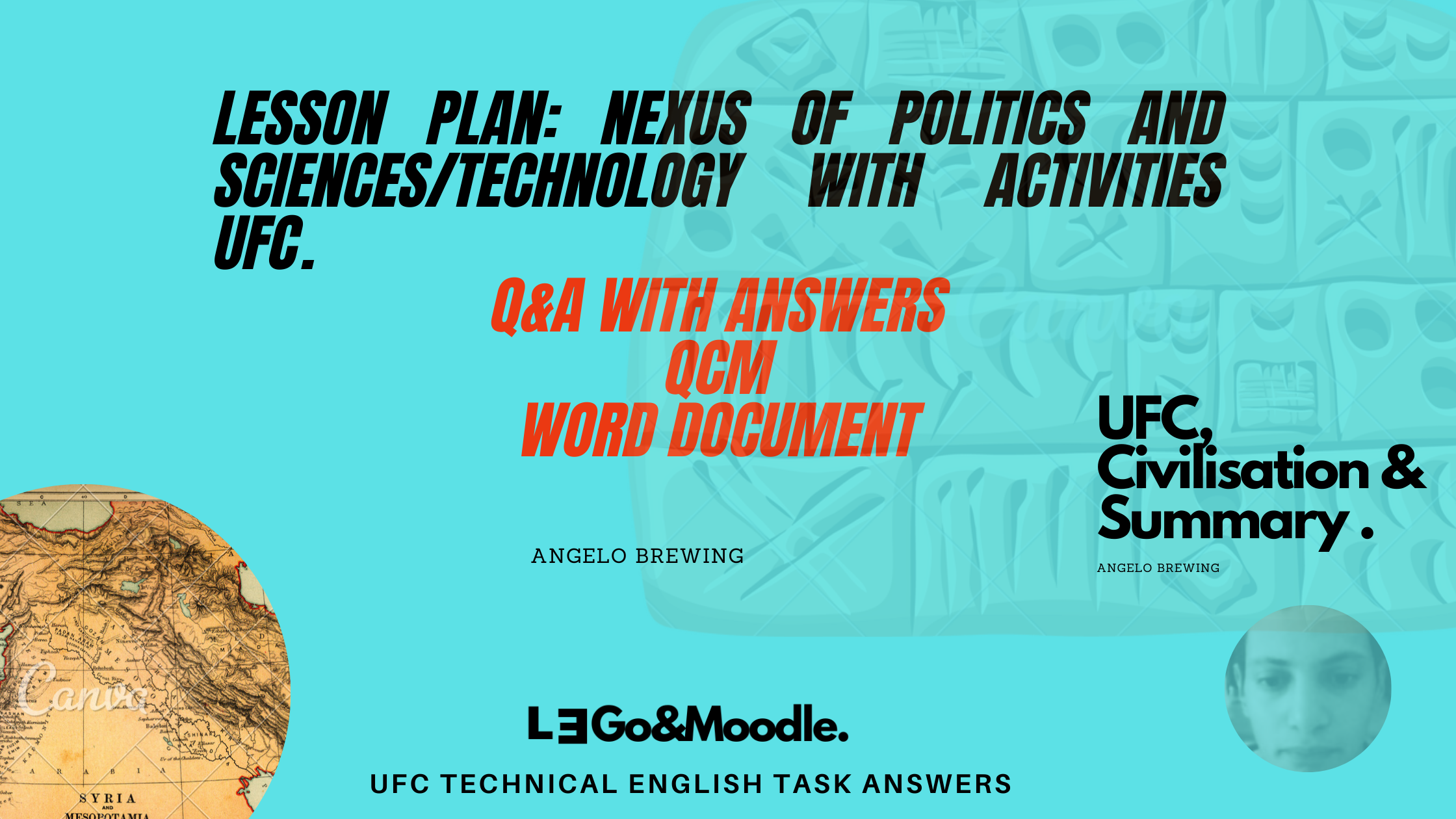The Interplay of Politics, Science, and Technology in Shaping Societies

Objective:
Understand how politics, science, and technology are interconnected and how this nexus has influenced societal governance and global advancement throughout history.
Introduction: (5 minutes)
The nexus of politics, science, and technology is a dynamic interplay shaping society and governance. Political decisions influence scientific research and technological development, determining priorities and funding. These scientific and technological advancements, in turn, impact political agendas and policies, especially in areas like public health, national security, and environmental management. This interaction is crucial for societal progress, driving policy-making and societal transformation. Understanding this nexus is vital for navigating contemporary challenges, demonstrating its significant role in global governance and international relations.
Main Content: (30 minutes)
1. Historical Evolution of Sciences and Technology:
- Prehistoric Technology: Development of basic tools from stone, wood, and bone, marking the onset of human ingenuity.
- Ancient Civilizations: Mesopotamia, Egypt, China, and the Indus Valley advanced in agriculture, architecture, and mathematics.
- Classical Sciences: In ancient Greece, figures like Aristotle and Plato initiated systematic thinking.
- Middle Ages: Slow scientific progress in the West, advancements in alchemy and early medicine.
- Renaissance: Renewed interest in classical learning; contributions in astronomy, physics, and engineering.
- Scientific Revolution: Rise of the scientific method, empirical observation, and experimentation.
- Industrial Revolution: Significant technological advancements like the steam engine and mechanization.
- Modern Sciences and Technology: Progress in physics, chemistry, biology, including quantum mechanics.
- Digital Age and Information Technology: Rapid growth of digital technology, changing communication and data processing.
- Internet and Global Connectivity: The Internet connected people globally, transforming communication and business.
- Biotechnology and Nanotechnology: Emergence of fields with potential to revolutionize medicine and industries.
- AI and Machine Learning: Advancements enabling computers to perform complex tasks.
2. Intersection of Politics and Sciences/Technology:
- Research Funding and Priorities: Politics determines which scientific fields and technologies advance.
- Regulation and Policy: Political decisions shape the regulatory framework for sciences and technology.
- National Security and Defense: Investment in technology and scientific research for national security.
- Technological Diplomacy: Political decisions impact international collaborations and technology sharing.
- Ethical and Moral Considerations: Politics shapes public discourse on ethical issues in technology.
- Technology Adoption and Infrastructure: Governments influence technology adoption through supportive policies.
- Science Communication and Public Perception: Politicians affect public trust in scientific research.
- Lobbying and Industry Influence: The technology industry uses political lobbying to influence regulations.
- Technology for Governance: Governments use technological tools for efficiency.
- Global Challenges and Cooperation: Politics plays a critical role in coordinating scientific efforts for global challenges.
Multiple-Choice Questions on The Nexus of Politics, Science, and Technology
Q1. What does the nexus of politics, science, and technology primarily influence?
- Economic policies
- Entertainment industries
- Societal structures and governance
- Sports regulations
Correct Answer: c) Societal structures and governance*

Q2. Which era's political climate significantly influenced scientific and technological advancements?
- The Space Race
- The Bronze Age
- The Renaissance
- The Information Age
Correct Answer: a) The Space Race
Q3. How does technology influence politics?
- By changing campaign strategies only
- By affecting international relations and policy-making
- By influencing educational curriculums
- By altering fashion trends
Correct Answer: b) By affecting international relations and policy-making*
Q4. What role does politics play in scientific research?
- Determines the cultural relevance of scientific findings
- Influences the direction and funding of research
- Only impacts the publication of research papers
- Plays no significant role
Correct Answer: b) Influences the direction and funding of research*
Q5. Which of the following is a result of the interplay between politics, science, and technology?
- Increased popularity of reality TV shows
- Advancements in public transportation systems
- Shifts in global fashion trends
- Changes in dietary habits
Correct Answer: b) Advancements in public transportation systems
Q&A: The Nexus of Politics, Science, and Technology
Q: What is the nexus of politics, science, and technology?
A: The nexus refers to the interconnected relationship between political decisions, scientific discoveries, and technological advancements, and how they collectively influence societal progress and governance.
Q: How do political decisions influence science and technology?
A: Political decisions can determine funding, set research priorities, and shape regulatory frameworks, thereby influencing the direction and pace of scientific and technological development.
Q: Can scientific advancements impact political policies?
A: Yes, scientific advancements often lead to new insights and technologies that can reshape political priorities and policies, particularly in areas like healthcare, environmental management, and national security.
Q: Why is the nexus important in shaping societies and governance?
A: This nexus is crucial because it drives societal transformation, informs policy-making, and helps address complex global challenges, ultimately shaping the well-being and progress of societies.
Q: Can this nexus have international implications?
A: Absolutely. The nexus often influences international relations, with global collaborations in science and technology being essential for addressing transnational issues like climate change and pandemics.
Our library








